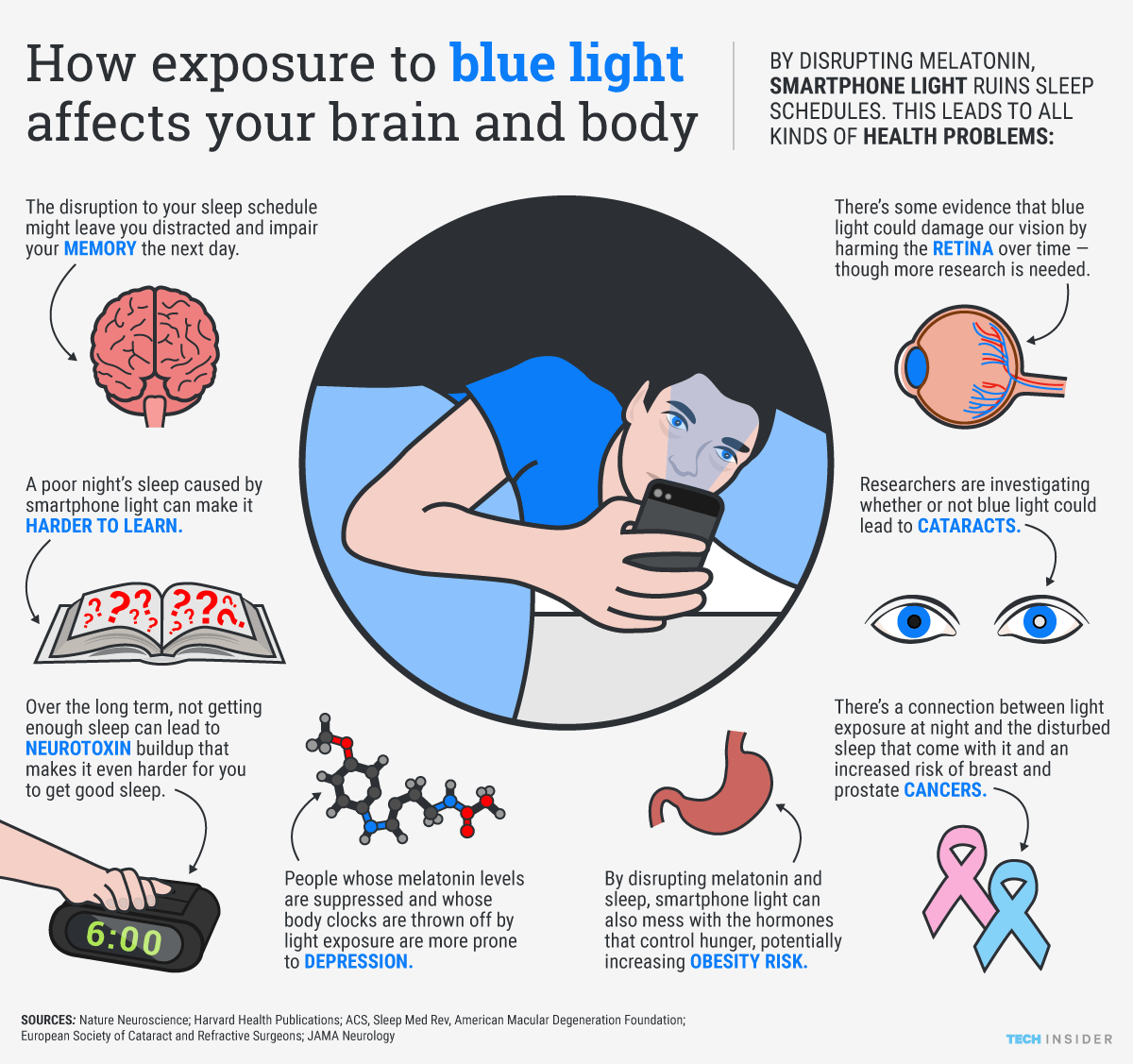We all know it’s a bad habit but now there’s science that proves that looking at your smartphone in bed is a certified horrible idea.
Smartphone Light Literally Ruins Your Sleep
While the bright blue light your smartphone releases comes in handy during the day, it has a different effect at night while you’re in bed. Since the blue light is meant to mimic sunlight, your brain gets confused and stops producing melatonin – the ever important hormone that gives your body hints that it’s time to hit the sack. Because of this, the light that shines from your smartphone as you scroll in bed can wreak havoc on your sleep cycle, making it difficult to fall asleep and stay asleep. Ruined sleep schedules and poor rest quality can ultimately lead to major health problems, physically and mentally.
How Blue Light Exposure Affects Your Brain
When your melatonin levels and sleep cycles are disrupted, you’ll experience more than just a distraction the next day – your memory can actually be impaired and your ability to learn will also be hindered. Not only that, but the longer your sleep is affected the harder it is to get a good night’s rest. Not getting enough sleep can actually lead to buildup of a neurotoxin that actually prevents you from getting good sleep. Research also shows that people whose melatonin levels are continually suppressed by the smartphone’s blue light are more prone to depression. When your internal clock is constantly thrown off, your biological patterns, including body temperature, blood pressure, and the release of other hormones also go awry.
How Blue Light Exposure Affects Your Body
Smartphones have the potential to ruin more than just your sleep – they can also destroy your vision. Constant, direct exposure to blue light can cause damage to our retinas. The AMDF (American Macular Degeneration Foundation) also warns that macular degeneration can be caused by the retinal damage initiated by blue light exposure, effectively causing you to lose the ability to see what’s literally right in front of you. While this evidence is surprising and kind of scary, it should be noted that most studies show this effect with the light being held very close to the retina, which may not exactly replicate typical phone use. Researchers are now also looking into whether or not smartphone use contributes to the development of cataracts. Not only that, but the constant sleep disturbance and light at night use have been linked to higher cancer risk, particularly breast and prostate cancer. Melatonin also acts as an antioxidant and while more definitive research is required, researchers are pointing to “uninterrupted darkness” as potentially protective against cancer.
How to Break the Habit of Scrolling On Your Smartphone
Clearly, there are better options to scrolling through your Facebook feed or playing a round of Candy Crush right before you go to sleep. And while we’ll never be able to completely avoid our screens, limiting our exposure at night is good for us. Some simple ways to reduce your screen time before bed are:
Spending some quality time with your loved one, without any screens Reading a book Doing some bedtime yoga Listening to relaxing music
If you really can’t resist the urge to check your phone, sometimes wearing blue light blocking glasses can help counteract the effects or even apps that reduce the amount of blue light emitted can help. But the less you check your phone before bed, the better your slumber, sight and social life will be the next day.
Featured photo credit: Pixabay via pixabay.com
